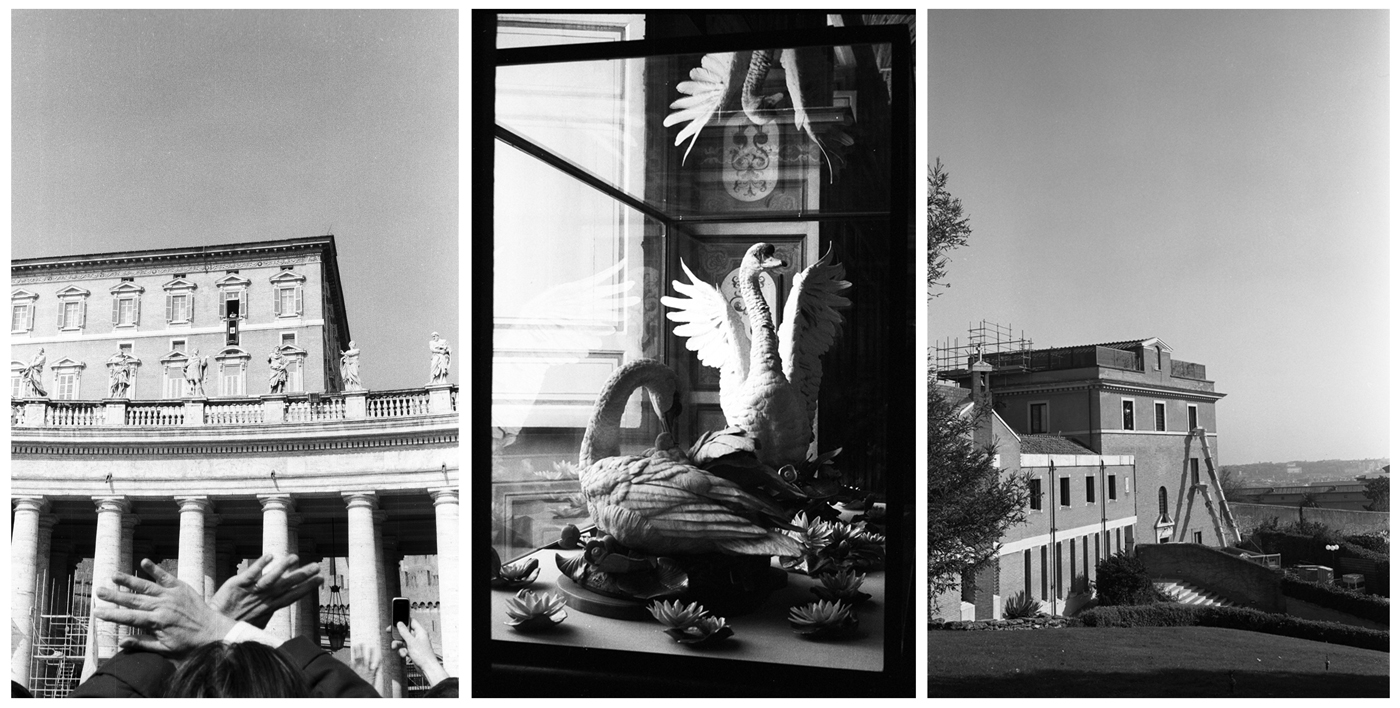
Left: Former residence of Benedict XVI, Vatican City. Center: Mute Swans of Peace, a porcelain sculpture by Boehm, presented in 1976 to Pope Paul VI by the Archdiocese of New York. Right: New residence of Benedict XVI under construction, Vatican City. Photographs © 2013 Lena Herzog. Please click here to see larger versions.
A feeling of suspense is hanging over the Eternal City. Italians at the moment are without a pope and without a functioning government. “These are crazy times, incredible,” says a former administrator of the presidential Quirinal Palace. “But we are Italians, and we’ve seen a lot throughout history.” His colleague in the palace gardens agrees. “We live in a place where every stone has a very long history,” she says. “Something will happen and all this will be resolved.”
A similar sense of uneasy equanimity extends to the Vatican. At the Apostolic Palace, the departing pope’s private apartments have been cordoned off with tape inscribed sede vacante (“vacant seat”); the outer doors have been bolted and tied with a red ribbon sealed with wax. Benedict XVI has retired to Castel Gandolfo, the papal summer residence, to await the election of his successor. The gardeners, unconcerned, continue toiling around Italy’s two sedi vacanti.
On the streets of Rome, all the clocks show different times. I used to think of this as a kind of unintentional conceptual art. Now it seems like the true reflection of a city where time is irrelevant.







































































































